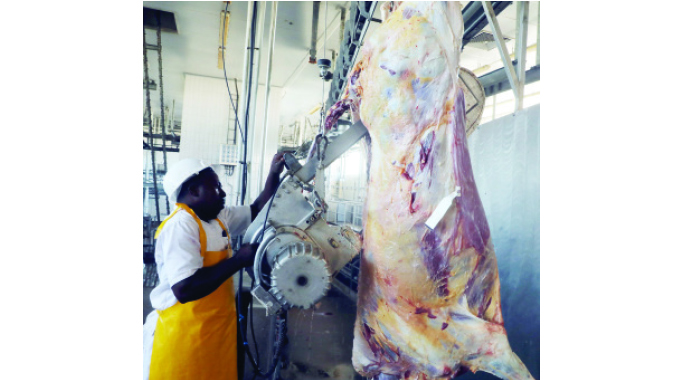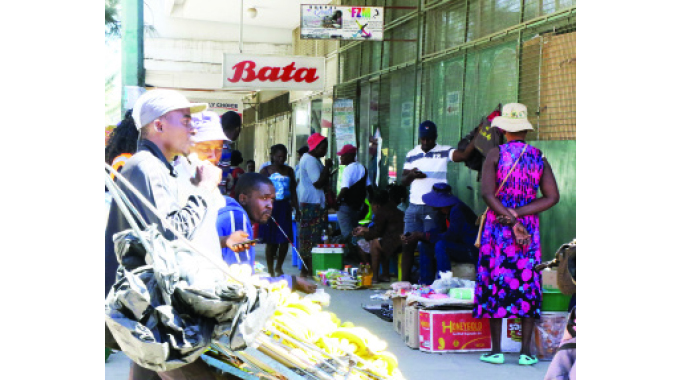CSC ramps up business

Nqobile Bhebhe, Senior Business Reporter
THE revived Cold Storage Company (CSC), now CSC-Boustead Beef Zimbabwe, is fast gaining traction among stakeholders amid increasing business orders, as more players in the meat value chain utilise the giant slaughter facilities taking advantage of improved efficiencies and affordable rates.
The Bulawayo-headquartered meat processing plant resumed operations last August after 20 years of closure, buttressing Government’s efforts to revive the city’s industry and creating more job opportunities.
Vice President, Dr Constantino Chiwenga, presided over the official re-opening of the company, which is being revamped under a US$400 million Joint Venture Farming Concession Agreement signed in 2019 with Boustead Beef Zimbabwe, a United Kingdom-based investor.
Government has vowed that it would not allow CSC to shut down again given its strategic role in the livestock-to-beef and leather value chains.
Five months down the line, the re-opening of CSC is slowly having an impact across the beef value chain and is promising to create more job opportunities.

According to management, the company’s storage capacity is fast increasing amid indications that it now caters for 30 percent of Bulawayo and other parts of Matabeleland region’s daily meat requirements.
Added to that, slaughter prices have tremendously reduced from about US$100 per beast to US$25, which CSC charges when compared to US$45 by some private abattoirs.
Of the US$25 charged, CSC pockets US$20 while US$5 goes to the veterinary services.
The drop in slaughtering charges is pivotal in developing the beef value chain back to yester-year glory with farmers getting the full value from their cattle-rearing activities.
On Wednesday, Business Chronicle visited the plant and observed hectic activity as several beasts were being slaughtered.
By mid-morning, 13 beasts had been slaughtered and carcasses stored in the cold room.
Asked about the state of operations and future projections, CSC-Boustead Beef consultant, Mr Reginald Shoko, who was on site said starting this first quarter they will begin buying cattle from farmers.

Mr Reginald Shoko
“Our thrust is to buy cattle from various farmers for slaughter, processing, and selling. By doing so we will be cutting out middlemen and farmers are expected to get value from their livestock,” said Mr Shoko.
In the long-run CSC is expected to play a leading role in growing the national herd through working closely with livestock farmers, the ultimate being to resume beef exports.
Beginning from scratch a few months ago, Mr Shoko said the CSC plant was now supplying 30 percent of Bulawayo and Matabeleland requirements with beef, which is a significant improvement.
“On output, we now cover 30 percent of daily meat requirements for the city. In terms of storage capacity, our cold chains can store up to 800 carcasses at any given time,” said Mr Shoko.
“We now have the capacity to slaughter 400 beasts per day but the target going forward is 1 000.”
During the just-ended holiday season, he said a total of 143 beasts were slaughtered at the plant on 23 December.
That capacity to slaughter 400 beasts per day is enhanced by various skill upgrades undertaken by the workers. Slightly over 50 people are employed, including former workers and new recruits.
At its peak in the 1990s, the company used to employ 1 500 permanent workers and about 700 casual employees, thereby making it one of Zimbabwe’s biggest employers.
It is hoped that capacity utilization and workforce figures will in the long run gradually improve as more business volumes are registered.
A regular user of the facility, Mr Gracious Ngwenya, said he has witnessed rapid service delivery since resumption of operations.
He said farmers and cattle dealers are impressed by the improved operations at CSC.

“When the plant resumed operations, there were several challenges, which affected most businesses at inception. However, over time there has been much improvement, and the quality of service is impressive,” said Mr Ngwenya.
“My hope is that this year, the slaughter turnaround period will be reduced.”
Meanwhile, the in-house butchery was also packed with customers.
Before its closure, CSC used to export beef, sheep, and goat meat to several countries but was forced to stop due to viability challenges.
CSC used to play a leading role in the processing and marketing of Zimbabwe’s beef since its inception in 1937.
Since 1992, CSC largely survived on EU exports and had a $15 million revolving payment facility with the bloc.
The facility was discontinued after the EU suspended imports in 2001 following an outbreak of foot and mouth disease.
CSC had an annual quota of 9 100 tons and used to earn at least US$45 million per year from the EU export quota.










Comments